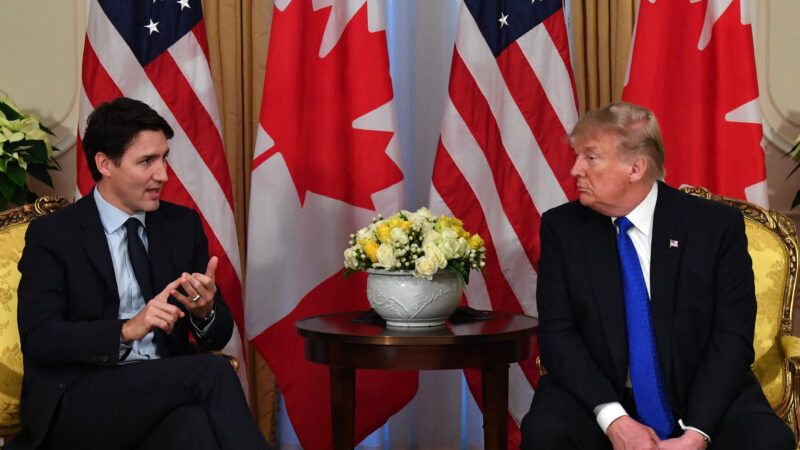Trade Wars That Never Happen Still Have Costs
One CEO says the uncertainty created by Trump's chaotic trade policies is "reminiscent of the adjustments we had to make during Covid-19."

In the first two weeks of his tenure, President Donald Trump threatened to impose tariffs on Canada and Mexico, said repeatedly that there was nothing the two countries could do to avoid the tariffs, and then…announced that the tariffs would not be imposed after all (for at least 30 days).
But even trade wars that don't happen have costs.
More to the point: The economic uncertainty created by Trump's tariff threats has already warped markets and harmed the economy in ways large and small.
"We have had to suspend every [capital expenditure] project we have for the next 24 months until we better understand the trade situation," Randy Carr told Bloomberg. Carr is CEO of World Emblem, the Florida-based business that is the world's largest manufacturer of emblems and patches. The company has also suspended plans to hire new employees. The disruptions, Carr says, are "reminiscent of the adjustments we had to make during Covid-19."
The uncertainty created by Trump's will-he/won't-he tariff strategy is not as bad as the tariffs themselves would be, of course. Following through with tariffs on all imports from Mexico and Canada would have reduced the size of the U.S. economy by 0.3 percent of gross domestic product and caused the loss of an estimated 269,000 jobs, according to the Tax Foundation.
But tariffs that never materialize create costs too—and that's something we know, in part, because of how Trump handled trade policy during his first term. Uncertainty created by Trump's trade policies reduced aggregate U.S. investment by as much as $47 billion in 2018, according to a 2020 study in the Journal of Monetary Economics.
The authors of that paper wrote that "all measures suggest that uncertainty about trade policy has recently shot up to levels not seen since the 1970s." They concluded that "both higher expected tariffs and increased uncertainty about future tariffs deters investment."
Trump's fans and allies try to justify his chaotic trade policies by arguing that the president is merely negotiating with other countries. That would make more sense if he wasn't picking an unnecessary fight with two of America's biggest trading partners, countries with which Trump literally negotiated a new trade deal during his first term.
Even so, there's no negotiating with the reaction of the markets—which responded negatively to the tariff threats and now seem to be pricing in the uncertainty going forward. (And, of course, the threat of those tariffs remains because Trump suspended them for only 30 days.)
No one—possibly including Trump, who is now threatening tariffs on European goods and all steel and aluminum imports—seems to know what will come next.
This much, however, is certain: A full-blown trade war would be costly for American businesses, consumers, and the economy as a whole—and the ongoing threat of such a conflict comes with plenty of costs too.


Show Comments (94)